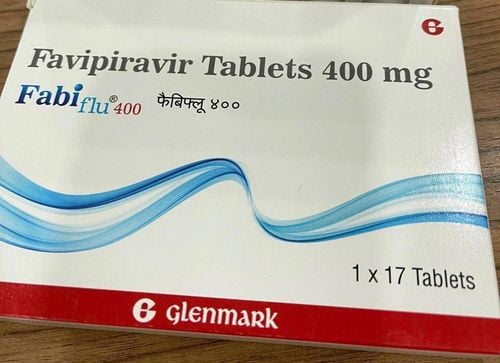This is an automatically translated article.
The article was professionally consulted with Doctor Tran Quoc Tuan - Head of Resuscitation Unit - ICU - Emergency Resuscitation Department - Vinmec Phu Quoc International General Hospital.Colds are one of the most common respiratory illnesses in children and adults. However, the symptoms of a cold are often mistaken for the flu. So what are the common symptoms of a cold?
1. What's the difference between a cold and the flu?
Many people still confuse the common cold with the flu because they are both respiratory illnesses and have similar symptoms. However, the two conditions are completely different in both their causative agents and their health effects.The causative agents of colds are usually viruses of the Rhinovirus, or Enterovirus family. Meanwhile, the flu is caused by influenza viruses A and B. In addition, cold symptoms are also less severe than those caused by the flu.

Enterovirus gây cảm lạnh
Trắc nghiệm: Bạn có phân biệt được chính xác cảm lạnh và cúm mùa?
Cảm cúm và cảm lạnh là hai khái niệm mà chúng ta thường đánh đồng nó giống nhau, không phân biệt rõ ràng. Dưới đây là một số câu hỏi trắc nghiệm, giúp bạn có thêm những kiến thức phân biệt cảm lạnh và cảm cúm. Từ đó, có những biện pháp điều trị bệnh phù hợp.2. What are the symptoms of a cold?
Symptoms of a cold usually appear 1-3 days after exposure to the virus. In addition, signs and symptoms can be different for each person. The most common symptoms include:Cold, sore throat, cold, runny nose or stuffy nose (nasal discharge is often thick, yellow or green; however, this is not a sign of a bacterial infection) . Cough Headache Body feeling slight aches Sneezing Muscle aches Mild cold Fever Feeling of pressure in the ears and face Swollen lymph nodes Watery eyes Loss of taste Discomfort in the body Shortness of breath These symptoms usually persist from 3-7 days. The most contagious period is during the first 3 days or weeks of illness.

Người bệnh xuất hiện dấu hiệu khó thở
3. When to see a doctor?
For adults: get medical help if you have the following:Fever over 101.3 F (ie 38.5°C) Fever lasts more than five days or comes back after a period Time to stop fever Difficulty breathing or wheezing Severe sore throat, headache or sinus pain For children: seek medical care immediately if any of the following signs are present:
Newborn until 12 weeks of age with a fever of 100.4 F (ie 38°C) Fever that increases or lasts for more than two days for children of any age Symptoms that are getting worse or show no signs of improvement Wheezing Ear pain Unusual drowsiness Loss of appetite.

Cha mẹ cần đưa trẻ đến gặp bác sĩ khi các triệu chứng ngày càng xấu hơn
4. Factors that increase the risk of catching a cold
As mentioned above, colds are caused by viruses entering the body through the eyes, nose or mouth. It can be spread through airborne droplets when an infected person talks, sneezes, or coughs.Viruses that cause colds can also be transmitted through actions such as contact with eyes, nose, mouth or sharing objects with an infected person (towels, toys or phones).
Several risk factors can increase the likelihood of catching a cold, including:
Age: children under 6 years of age are most at risk of catching a cold; Weak immune system: patients with chronic diseases or weakened immune systems are more likely to catch colds; Seasons of the year: fall and winter are the times when children and adults are most susceptible to colds; Smoking: Regular smoking or exposure to secondhand smoke is also a risk factor for catching a cold.

Hút thuốc lá làm tăng nguy cơ bị cảm lạnh
5. Complications of a cold
Although a cold can clear up on its own after a few days, in certain cases, it can cause serious health complications if not treated promptly. These complications include:Asthma : colds can trigger asthma attacks in people with asthma. Otitis media (acute ear infection): a virus or bacteria can enter the space behind the eardrum, leading to symptoms such as earache, green or yellow nasal discharge, and a return of fever. . Acute sinusitis: If a cold is left untreated, it can lead to inflammation and infection of the sinuses in both children and adults. Other secondary infections: strep throat, pneumonia, bronchitis.

Cảm lạnh có thể gây biến chứng hen suyễn
6. Measures to prevent colds
There is currently no vaccine to treat the common cold, but you can still prevent this disease if you strictly follow the following measures:Wash your hands often : you should do Wash your hands often with hand sanitizer to kill bacteria or viruses on your hands. Disinfect furniture: clean the kitchen and countertops with disinfectant, especially while someone in your family has a cold. In addition, parents also need to pay attention to cleaning toys for children regularly. Use a tissue: Use a tissue to cover your mouth when coughing or sneezing. Then, throw the used tissue in the trash and wash your hands with soap.

Người bệnh nên dùng khăn giấy che miệng khi ho hoặc hắt hơi
Please dial HOTLINE for more information or register for an appointment HERE. Download MyVinmec app to make appointments faster and to manage your bookings easily.
Reference source: mayoclinic.org ; nhs.uk ; healthline.com ; webmd.com












